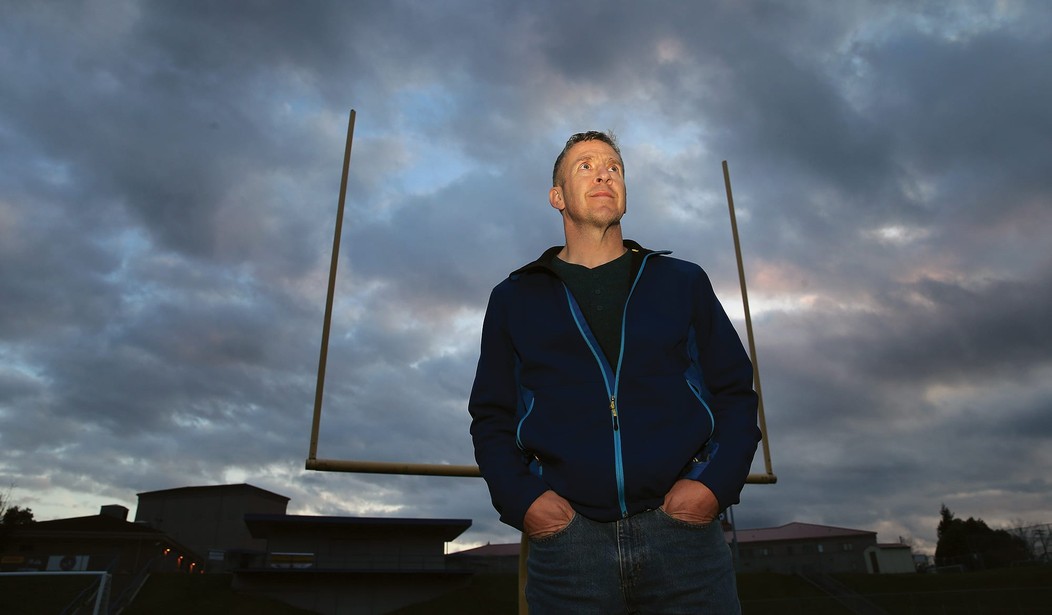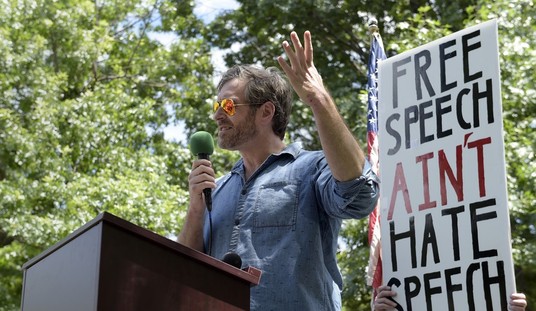On Tuesday, the Supreme Court refused to take up Joseph A. Kennedy v. Bremerton School District, the case surrounding Washington state high school football coach Joe Kennedy, who was fired after he refused to stop praying after games. Four Court justices explained that they would not take up the case, but insisted that the lower court probe the issues more thoroughly.
“The Supreme Court seems to understand that banning all coaches from praying just because they can be seen is wrong and contradicts the Constitution,” Kelly Shackelford, president and CEO of First Liberty, the law firm representing Kennedy, said in a statement. “We are eager to return to the District Court, answer the questions the justices raised today, and give the Court another opportunity to protect the right of every American to engage in private religious expression, including praying in public, without fear of getting fired.”
In September 2015, the school district told Kennedy to stop praying on the field after games, arguing that the prayers violated the Establishment Clause of the Constitution and interfered with Kennedy’s job duties. The coach persisted in his prayers, so the district placed him on administrative leave, effectively firing him.
The coach sued the school district in 2016, seeking reinstatement and a ruling that he had the right to pray on the field after games. In 2017, a unanimous three-judge panel at the U.S. Court of Appeals for the 9th Circuit ruled against Kennedy, holding that he was speaking as a public employee and not as a private citizen during post-game prayers.
Supreme Court Justice Samuel Alito wrote the opinion denying Kennedy’s case, and Justices Clarence Thomas, Neil Gorsuch, and Brett Kavanaugh joined in his opinion. Alito made it clear he did not agree with the 9th Circuit’s decision, but argued that “important unresolved factual questions would make it very difficult if not impossible at this stage to decide the free speech question that the petition asks us to review.”
Alito wrote that the “key question” is whether Kennedy’s termination violated his free speech rights. The school district presented two different reasons the coach should stop praying: “first, that petitioner, in praying on the field after the game, neglected his responsibility to supervise what his players were doing at that time and, second, that petitioner’s conduct would lead a reasonable observer to think that the district was endorsing religion.”
If the school district merely rebuked Kennedy for neglecting his duties, “his free speech claim would likely fail.” However, if the coach was “on duty only in the sense that his workday had not ended and that his prayer took place at a time when it would have been permissible for him to engage briefly in other private conduct, say, calling home or making a reservation for dinner at a local restaurant,” then his free speech claim would likely prevail.
When asked about this issue, First Liberty lawyer Mike Berry argued that Bremerton School District applied a double standard.
“The Bremerton School District made it clear that they had no problem with Coach Kennedy (or any BHS coach) leaving the field to use the restroom or to talk to someone in the stands,” Berry told PJ Media. “The only thing BHS had a problem with was Coach Kennedy’s 15-30-second silent prayer by himself.”
While Alito denied Kennedy’s petition for the Supreme Court to take up his case, the justice also rebuked the 9th Circuit’s “understanding of the free speech rights of public school teachers” as “troubling.”
“According to the Ninth Circuit, public school teachers and coaches may be fired if they engage in any expression that the school does not like while they are on duty, and the Ninth Circuit appears to regard teachers and coaches as being on duty at all times from the moment they report for work to the moment they depart, provided that they are within the eyesight of students,” Alito wrote.
Under this view, “if teachers are visible to a student while eating lunch, they can be ordered not to engage in any ‘demonstrative’ conduct of a religious nature, such as folding their hands or bowing their heads in prayer.”
Any standard that prevents teachers from praying at meals is far too restrictive, Alito argued.
Finally, the Supreme Court justice faulted Kennedy’s lawyers for not bringing up religious freedom arguments to defend the coach’s prayer. Kennedy “still has live claims under the Free Exercise Clause of the First Amendment and Title VII of the Civil Rights Act of 1964.”
As for the religious freedom claims, Berry told PJ Media, “We haven’t yet litigated those claims in the district court.”
Kennedy’s legal battle over post-game prayer is far from over, and even in denying his case, the Supreme Court suggested he deserves a second hearing and might even prevail against the school district.
Follow the author of this article on Twitter at @Tyler2ONeil.









Join the conversation as a VIP Member